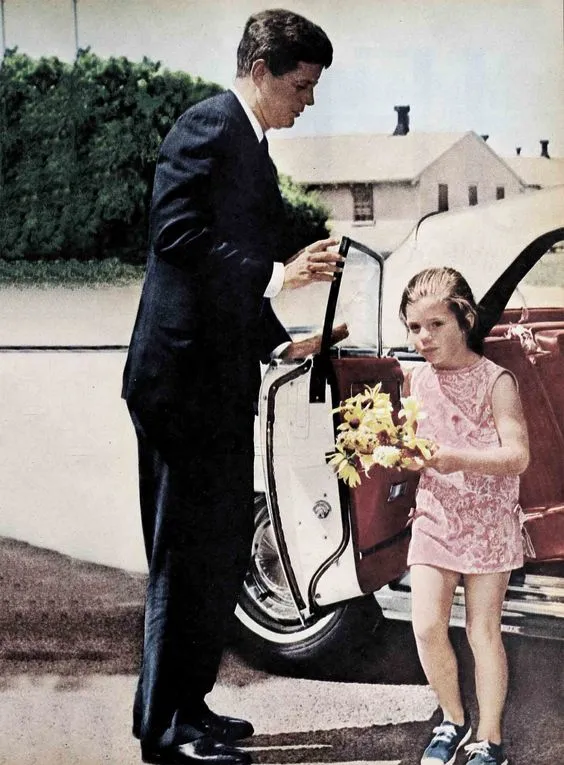In the landscape of television sitcoms, there are few shows that have had as profound an impact as "Roseanne." Premiering in 1988, this groundbreaking series created by Matt Williams and starring Roseanne Barr not only entertained audiences with its sharp wit and humor but also tackled real-life issues faced by working-class families. "Roseanne" stood out for its honest portrayal of blue-collar life, its memorable characters, and its ability to tackle complex social issues with humor and empathy. In this article, we'll delve into the world of "Roseanne" and explore why it remains a beloved and culturally significant show.
(Watch the video below)
The Conner Family: A Realistic Portrayal of Working-Class America

At the center of "Roseanne" was the Conner family, an ensemble of characters who defied the traditional sitcom family archetype. The Conners were a working-class family, living paycheck to paycheck, facing the everyday challenges of making ends meet. The show depicted the trials and tribulations of Roseanne and Dan Conner, played by Roseanne Barr and John Goodman, as they navigated the complexities of marriage, parenthood, and financial struggles.
The Conner children, including Becky, Darlene, and D.J., portrayed by Lecy Goranson, Sara Gilbert, and Michael Fishman, respectively, grappled with the typical issues faced by teenagers growing up in an environment where resources were limited. This authentic portrayal of a working-class family resonated with viewers across the country who saw their own lives reflected on the small screen.
Confronting Real Issues
What set "Roseanne" apart from many other sitcoms of its era was its willingness to tackle real-life issues head-on. The show delved into topics such as unemployment, addiction, domestic violence, and teenage pregnancy, confronting them with unflinching honesty. One particularly memorable episode, titled "Let's Call It Quits," explored the devastating effects of domestic violence, offering a powerful portrayal of the issue and its impact on families.
"Roseanne" didn't just address these issues in a superficial manner; it explored the emotional and psychological toll they took on the Conner family. This willingness to portray the struggles of everyday life, warts and all, allowed the show to connect with its audience on a profound level.
Breaking Stereotypes and Taboos

In addition to addressing serious issues, "Roseanne" challenged stereotypes and taboos surrounding topics like sexuality, race, and gender roles. The character of Leon Carp, portrayed by Martin Mull, was one of the first openly gay characters on American television. His coming-out story was handled with sensitivity and humor, helping to promote understanding and acceptance.
Furthermore, the show featured several episodes that questioned traditional gender roles. Roseanne was portrayed as a strong and assertive woman who often took charge of the household, while Dan was shown as an emotionally sensitive and nurturing father. This portrayal challenged the prevailing stereotypes of the time and contributed to discussions about gender equality within families.
The Humor of Everyday Life
"Roseanne" was not without its humor, and it excelled at finding the funny moments in the everyday struggles of the Conner family. Whether it was Roseanne's sharp wit, Dan's easygoing humor, or the sarcastic banter between siblings, the show's humor was rooted in the realities of its characters' lives.
One of the show's comedic strengths was its ability to use humor to cope with adversity. Instead of shying away from difficult situations, the Conners often used humor as a defense mechanism, turning their struggles into sources of laughter. This approach endeared the characters to audiences and made them feel like members of their own families.
The Legacy of "Roseanne"

"Roseanne" was a trailblazer in the world of television, setting new standards for realism and representation. Its impact on the industry and popular culture cannot be overstated.
First and foremost, the show paved the way for more authentic and diverse portrayals of American families on television. It demonstrated that audiences were hungry for stories that reflected their own experiences, even if those experiences were far from idyllic. This opened the door for a wave of TV shows that followed, including "The Middle," "Shameless," and "The Connors" (a spinoff of "Roseanne"), all of which continued to explore the lives of working-class families.

"Roseanne" also had a significant impact on discussions of class and socioeconomic status in America. By putting a blue-collar family at the forefront, the show highlighted the struggles faced by many Americans who were trying to make ends meet. This portrayal contributed to a broader societal dialogue about economic inequality and the challenges of the working class.
Controversy and Reboot

Despite its significant impact, "Roseanne" was not without controversy. In 2018, a reboot of the show, titled "Roseanne," faced backlash due to offensive tweets posted by the show's star, Roseanne Barr. The controversy led to the cancellation of the reboot, but it also sparked discussions about separating the artist from the art and the responsibilities that come with being a public figure.
In response to the cancellation, a spinoff series, "The Conners," was created. This series continued the story of the Conner family without Roseanne Barr's involvement, focusing on the other beloved characters and their lives in the wake of her absence.
Conclusion

"Roseanne," which aired from 1988 to 1997, was a groundbreaking sitcom that dared to portray the lives of a working-class American family with honesty and authenticity. Through its realistic characters, willingness to address real issues, and humor grounded in everyday life, the show captured the hearts of viewers and left a lasting legacy in television history.
By confronting societal taboos, challenging stereotypes, and promoting discussions on important issues, "Roseanne" transcended the typical confines of a sitcom and became a cultural touchstone. Its impact on the portrayal of American families on television and its contributions to discussions about class and social issues cannot be overstated.
Despite controversies and reboots, the Conner family remains an integral part of television history, reminding us that the power of storytelling lies in its ability to reflect and connect with the experiences of everyday people. "Roseanne" accomplished this with grace and humor, leaving an indelible mark on the medium and its viewers.

